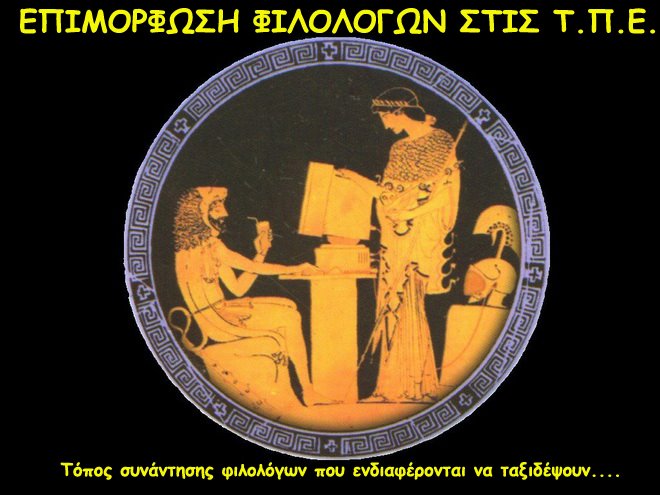ΕΥΡΩΠΑΪΚΟ ΒΡΑΒΕΙΟ ΛΟΓΟΤΕΧΝΙΑΣ ΓΙΑ ΤΗΝ ΠΟΙΗΤΡΙΑ ΚΙΚΗ ΔΗΜΟΥΛΑ!

Από τη Νόρα Ράλλη
Με το Ευρωπαϊκό Βραβείο Λογοτεχνίας (Prix Europeen de Litterature) θα τιμηθεί αύριο Σάββατο, 13 Μαρτίου, η ποιήτρια και τακτικό μέλος της Ακαδημίας Αθηνών (είναι η τρίτη γυναίκα που εξελέγη μέλος της Ακαδημίας Αθηνών μετά τη Γαλάτεια Σαράντη και την Αγγελική Λαϊου), Κική Δημουλά για το σύνολο του ποιητικού και του πεζού έργου της. Σύμφωνα με την εφημ. Το Βήμα, η απονομή του βραβείου θα πραγματοποιηθεί στο Στρασβούργο, σε ειδική εκδήλωση, στο πλαίσιο της πέμπτης Ευρωπαϊκής Συνάντησης Λογοτεχνίας και αποτελεί κορυφαίο γεγονός στον χώρο των Ευρωπαϊκών Γραμμάτων. Από το Στρασβούργο, με αγάπη: «Το βραβείο αφορά το σύνολο του έργου Ευρωπαίου/ας συγγραφέως διεθνούς επιπέδου, και σκοπό έχει να προωθήσει την καλύτερη γνώση των λαών της Ευρώπης μέσα από τις μεγάλες μορφές της λογοτεχνίας της. Η επιτροπή διακρίνει στο έργο σας μία από τις μεγάλες φωνές που εκπροσωπούν τη σύγχρονη δημιουργία και θέλει να υπογραμμίσει επίσημα τη σημασία του έργου σας στο αύριο της ευρωπαϊκής κουλτούρας. Μαζί σας βραβεύεται ο μεταφραστής Μισέλ Βόλκοβιτς, για το σύνολο των μεταφράσεών του και για τις μεταφράσεις του δικού σας έργου». Και η επιστολή τελειώνει με τη φράση: «Θερμά συγχαρητήρια εκ μέρους όλων των μελών της επιτροπής και εκφράζουμε τη χαρά μας να σας υποδεχτούμε τον Μάρτιο του 2010 στις όχθες του Ρήνου».Το Ευρωπαϊκό Βραβείο Λογοτεχνίας στηρίζεται από το Ευρωπαϊκό Συμβούλιο, το υπουργείο Πολιτισμού της Γαλλίας και το πανεπιστήμιο Marc-Bloch. Tην κριτική του επιτροπή αποτελούν συγγραφείς, μεταφραστές, ακαδημαϊκοί και θεσμικοί παράγοντες από το χώρο του πολιτισμού.
Και επειδή, ως είθισται, αυτό που ξέρουν οι "ξένοι" συνήθως αγνοούν οι Έλληνες (συνήθως...), να πούμε πως η Κική Δημουλά γεννήθηκε το 1931 στην Αθήνα, όπου και ζεί μέχρι σήμερα. Παντρεύτηκε τον μαθηματικό και εξαίρετο ποιητή Άθω Δημουλά, με τον οποίο απέκτησε δύο παιδιά και ο οποίος της ώθησε προς την ποίηση. Το 2002 εξελέγη τακτικό μέλος της Ακαδημίας Αθηνών (μία εκ των τριών γυναικών που έχουν γίνει δεκτές!). Θέματα που κυριαρχούν στα ποιήματά της είναι η απουσία, η φθορά, η απώλεια, η μοναξιά και ο χρόνος. Χαρακτηριστικά της ποίησής της είναι η προσωποποίηση αφηρημένων εννοιών, η ασυνήθιστη χρήση κοινών λέξεων και η πικρή φιλοπαίγμων διάθεση. Το 1972 τιμήθηκε με το Β' Κρατικό Βραβείο Ποίησης για τη συλλογή "Το λίγο του κόσμου", το 1989 με το Α΄ Κρατικό Βραβείο Ποίησης για τη συλλογή "Χαίρε ποτέ" και το 1995 με το Βραβείο Ουράνη της Ακαδημίας Αθηνών για τη συλλογή "Η εφηβεία της λήθης".
Καθώς, όμως, για τους ανθρώπους που έχουν πραγματικά αξία αδιαμφισβήτητη - ακόμα και προς όσους δεν είναι υποστηρικτές των έργων τους - το καλύτερο είναι να μιλούν οι ίδιοι, παραθέτουμε το κάτωθι βιογραφικό σημείωμα, γραμμένο από την ίδια την ποιήτρια Κική Δημουλά:
«Ένα βιογραφικό σημείωμα πρέπει, αφού γραφτεί, να μείνει επ’ αρκετόν καιρό κρεμασμένο στον αέρα από ένα τσιγκέλι αυστηρότητας, ώστε να στραγγίξουν καλά τα στερεότυπα, οι ωραιοποιήσεις, η ρόδινη παραγωγικότης και ο πρόσθετος ναρκισσισμός, πέραν εκείνου που ενυπάρχει στη φύση μιας αυτοπαρουσίασης. Μόνον έτσι βγαίνει το καθαρό βάρος: το ήθος που επέβαλες να τηρεί η προσπάθειά σου. Τα πόσα βιβλία έγραψε κανείς, πότε τα εξέδωσε, ποιες μεταφράσεις τα μεταναστεύουν σε μακρινές ξένες γλώσσες και ποιες διακρίσεις τα χειροκροτούν είναι τόσο τρέχοντα, όσο το να πεις ότι μέσα σ’ έναν βαρύτατο χειμώνα υπήρξαν και κάποιες μέρες με λαμπρή λιακάδα. Ωστόσο, επειδή αυτό είναι το υλικό της πεπατημένης, που δεν μπορεί να συνεχίσει τη χάραξή της με συνεσταλμένες καινοτόμες επιφυλάξεις, γεννήθηκα στην Αθήνα το 1931. Η παιδική ηλικία πέρασε χωρίς να αναδείξει το «παιδί θαύμα». Το 1949, τελειώνοντας το Γυμνάσιο, υπέκυψα εύκολα στο «πρέπει να εργαστείς», και εργάστηκα στην Τράπεζα της Ελλάδος είκοσι πέντε χρόνια. Ανώτερες σπουδές: η μακρά ζωή μου κοντά στον ποιητή Άθω Δημουλά. Χωρίς εκείνον, είμαι σίγουρη ότι θα είχα αρκεστεί σε μια ρεμβαστική, αμαθή τεμπελιά, προς την οποίαν, ίσως και σοφά, ακόμα ρέπω. Του οφείλω το λίγο έστω που της ξέφυγα, την ατελή έστω μύησή μου στο τι είναι απλώς φωνήεν στην ποίηση και τι είναι σύμφωνον με την ποίηση, του οφείλω ακόμα την πικρότατη δυνατότητα να μπορώ σήμερα, δημόσια, να τον μνημονεύω εις επήκοον της πολυπληθούς λήθης.[...] Δεν νιώθω δημιουργός. Πιστεύω ότι είμαι ένας έμπιστος στενογράφος μια πολύ βιαστικής πάντα ανησυχίας, που κατά καιρούς με καλεί και μου υπαγορεύει κρυμμένη στο ημίφως ενός παραληρήματος, ψιθυριστά, ασύντακτα και συγκεκομμένα, τις ακολασίες της με έναν άγνωστο τρόπο ζωής. [...] Φύσει ολιγογράφος, εξέδωσα οκτώ ποιητικές συλλογές μέσα σε σαράντα πέντε χρόνια. Η σημασία τους είναι ακόμα συμβατική. Είναι γραμμένη στη λίστα αναμονής των μεγάλων επερχόμενων κυμάτων του μετα-κριτή χρόνου».
Πηγή: http://fimotro.blogspot.com
